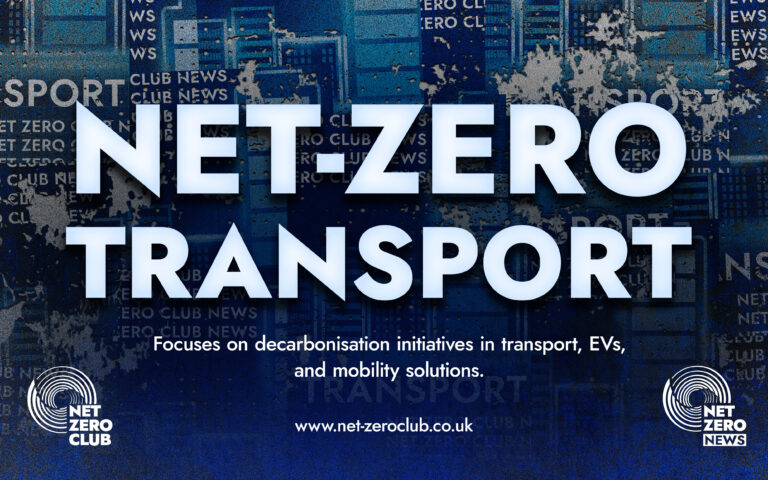AA Slams Govt on EVs, Net-Zero Funding, Retrofit & Heat Networks

Welcome to Net Zero News, where we bring you the latest developments driving the UK’s transition to a net-zero future. Net Zero News can reveal that the road to electrification in the UK has hit a crossroads, according to the AA president addressing industry and local authority delegates at the Transport & Energy Forum at Warwick University today (20 November).
The AA president delivered his remarks to a gathering of sector specialists and local government representatives in Warwickshire, warning that mixed signals from Westminster are undermining the drive towards electric vehicles. Speaking at the Transport & Energy Forum 2025, he criticised policy inconsistency and urged clearer direction as new data shows the UK still relies heavily on fossil fuels for transport.
Overview
The UK has committed to achieving net-zero greenhouse gas emissions by 2050, with transport accounting for around 27 per cent of total emissions. To meet this target, government plans include a ban on the sale of new petrol and diesel cars by 2030 and a subsequent phase-out of hybrid vehicles by 2035. The AA president highlighted concerns that incentives for EV adoption, such as purchase grants and tax benefits, have been increasingly uncertain, while infrastructure roll-out for public charging remains patchy in many regions. He noted that without the right policy framework, industry investment and consumer confidence risk stagnating.
He also pointed to recent polling which indicates that affordability and charging access remain the top barriers for prospective EV buyers. The AA’s charging infrastructure survey found that although the number of public charge points has grown rapidly, distribution is uneven, with rural areas still significantly underserved. This disparity could slow regional progress towards decarbonisation, he warned.
Why It Matters
Clear, consistent messaging is vital to sustain momentum in the transition from internal combustion engines to battery electric vehicles. The AA president argued that ambiguous signals on grant levels, taxation on EV energy use and road pricing could confuse motorists and deter fleet operators from committing to electrification. Given that transport remains the UK’s largest source of CO2 emissions, any slowdown in EV uptake risks derailing progress towards statutory climate targets.
Moreover, the automotive sector supports hundreds of thousands of jobs across the UK. Manufacturers, suppliers and local charging network operators require stable policy horizons to plan investment, scale production and secure supply chains for critical minerals. Uncertainty at the centre can have ripple effects throughout the economy.
Funding & Partners
The Transport & Energy Forum is hosted by Warwick University’s Manufacturing Group in collaboration with industry bodies and local authorities. While the AA president’s address did not include new funding announcements, the forum has previously highlighted multi-million-pound private sector commitments to charging infrastructure. Local councils in attendance have secured government grants under the On-Street Residential Chargepoint Scheme, although deployment has varied widely by region.
Private sector partners at the event included charging network providers and automotive manufacturers, all stressing the need for coordinated public-private investment. Net Zero News understands that further details on cross-sector funding initiatives may be outlined in forthcoming government consultations.
Policy Context
The UK’s Transport Decarbonisation Plan, published in 2021, set out a roadmap for reducing road emissions by 90 per cent by 2050. Subsequent strategy papers, including the Energy Security Strategy and the Net Zero Strategy, have reinforced electrification as a key pillar. However, critics – including the AA president – have pointed to delays in statutory instruments and secondary legislation required to implement taxation and infrastructure measures effectively.
In the devolved administrations, Scotland, Wales and Northern Ireland have set complementary net-zero targets and EV strategies, but all face similar challenges around charger rollout and consumer incentives. Coordinated UK-wide action remains essential to avoid a fragmented market and to achieve economies of scale.
Impacts
Local authorities are responsible for approving new chargepoint installations and managing on-street parking policies. The AA president warned that councils could struggle to meet demand if government guidance remains unclear. Meanwhile, fleet operators in logistics and public transport sectors are closely watching policy developments before committing to further electrification of buses and vans.
Consumers may feel that the rapid shift to low-emission vehicles is losing impetus, risking a backlash that could stall the market. Conversely, a more definitive policy framework could unlock further private investment and accelerate the replacement of ageing petrol and diesel cars.
Next Steps
The AA president called for an urgent meeting with Department for Transport officials to clarify future grant levels, taxation regimes and charger rollout targets. Net Zero News understands this forms part of wider engagement ahead of the next Budget and forthcoming Transport Bill.
Net Zero News is powered by the Net Zero Club.
Join the UK’s fastest-growing net-zero community.
Upcoming Events:
Net Zero Scotland Projects Conference – Edinburgh
Net Zero Nations Projects Conference – Westminster, London
Got a net-zero project to share? Email: lee@net-zero.scot

 Got net-zero news, project updates, or product launches to share?
Got net-zero news, project updates, or product launches to share? 